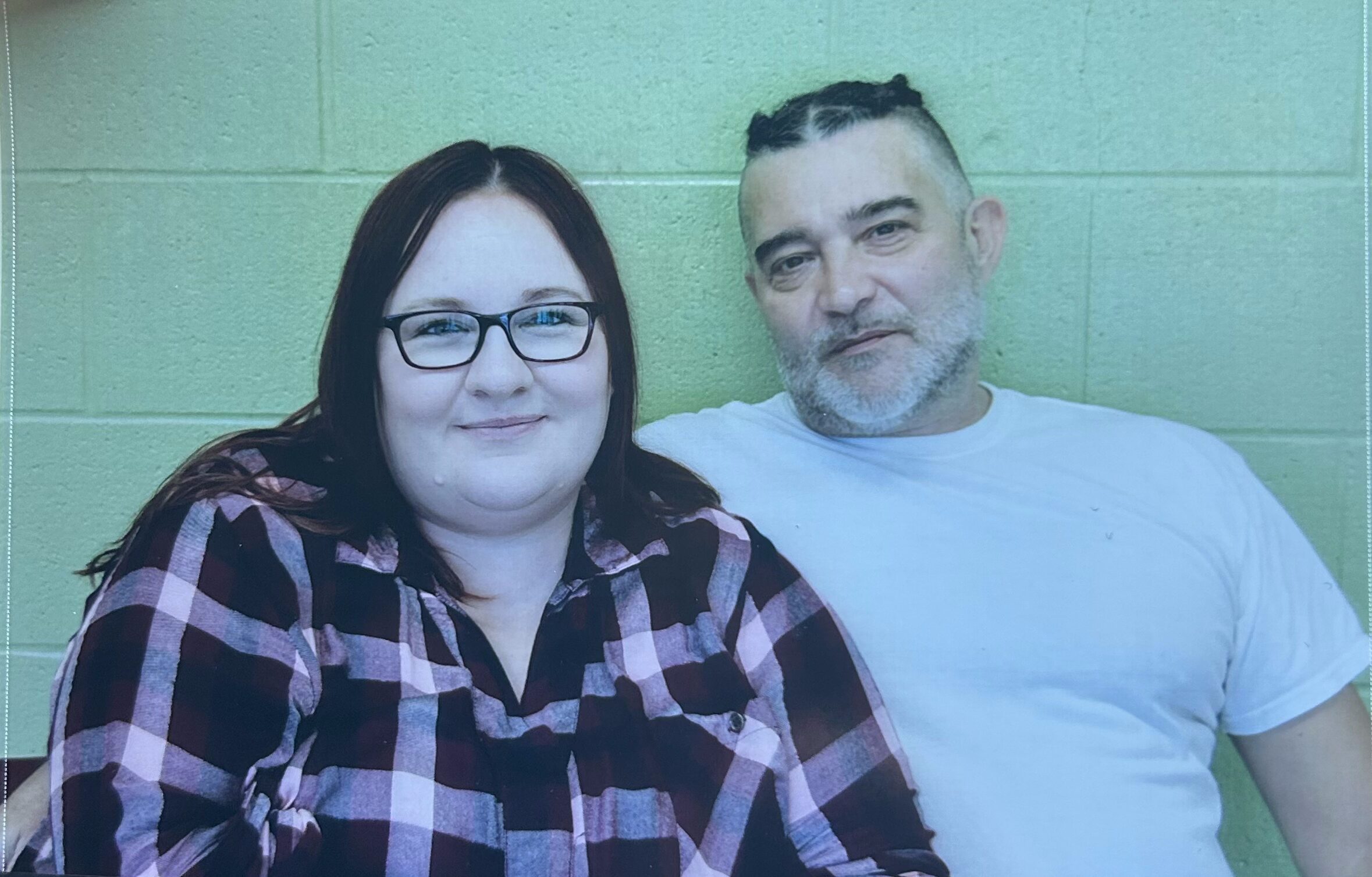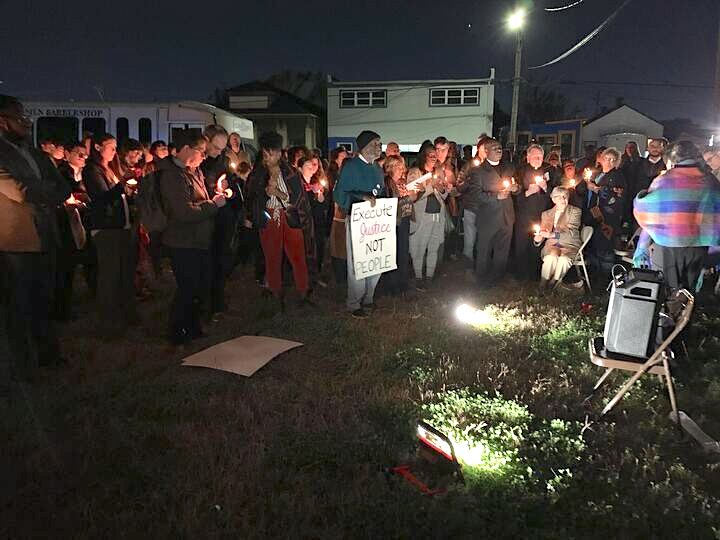He’s Been On Louisiana’s Death Row for Decades. A Judge Just Vacated His Conviction.
Chris Duncan’s longtime claims of innocence were boosted by the discrediting of bite mark analysis, and by recent reforms now under threat from the state’s Republican leadership.
| April 26, 2025

Editor’s note (Dec. 1, 2025): Duncan was released from prison in late November, seven months after this ruling.
Jimmie Christian Duncan has spent over 26 years on death row at Louisiana’s Angola prison for the rape and murder of his girlfriend’s toddler daughter—a crime he has always maintained never happened. On Thursday, a Louisiana judge dismissed his conviction, vindicating Duncan’s fierce, decades-long effort to prove his innocence.
In his order vacating the conviction, District Court Judge Alvin Sharp wrote that Duncan had successfully demonstrated his claim of “factual innocence” based on new evidence that was not available at the original trial. His conviction relied on a so-called bite mark analysis, a method that’s since been discredited and is widely regarded as ‘junk science’, that was conducted by a now-infamous duo, doctor Steven Hayne and dentist Michael West. As I reported in Bolts and Mother Jones last month, Hayne and West have since been found responsible for a host of other wrongful convictions; Duncan is the last man left on death row who had been convicted on the basis of their work.
Duncan’s case fits with a long tradition of wrongful convictions in Louisiana. Between 1976 and 2015, an astonishing 80 percent of the state’s capital sentences were later reversed—nine people have been exonerated off death row in the time that Duncan has been there.
But he is also the first person to receive relief under Louisiana’s factual innocence statute, a reform that the state created in 2021 under Governor John Bel Edwards, a Democrat, which dramatically expanded how prisoners can make innocence claims by allowing people to introduce new facts rather than simply raise constitutional violations as part of their post-conviction review process.
When I spoke to Duncan shortly after he learned about the ruling, he told me he was in shock. “I’m scared to have full joy because I ain’t walked out that gate yet,” he said. “It’s been a really really long and difficult time.” He called his lawyers heroes, saying: “I would need a notepad to write down all the attorneys I would owe thanks to.”
He remains in prison for now; state officials could pursue options to fight Sharp’s ruling or try to seek a new conviction.
I’ve been talking to Duncan about his case for well over a year now as I’ve reported the feature article, which detailed his fight to clear his name during the decades he’s spent on death row. Duncan was arrested in December 1993 and charged with negligent homicide after his girlfriend’s daughter Haley drowned in the bathtub while he was caring for her. But after Hayne and West, who were tasked with the autopsy, reported that Haley had been bitten and raped, Duncan’s charges were upgraded to capital murder and he was convicted and sentenced to death.
Over the years, successive legal teams for Duncan turned up significant exonerating evidence, some of which the prosecution never turned over to his original trial lawyers. Perhaps most damning was the mid-2000s discovery of a shocking videotape that depicted Dr. West pressing a mold of Duncan’s teeth into Haley’s body, appearing to create the bite marks the dentist claimed were already there—evidence that the jury in Duncan’s trial never saw. Despite these discoveries, broader advancements in forensic scientific understanding, and revelations about the extent of Hayne and West’s misconduct, Duncan remained on death row.
In 2024, he was finally granted a new evidentiary hearing. At the hearing this past September, which I attended, Duncan’s legal team presented a series of experts who testified that Hayne and West’s methods were indefensible, that bite mark matching is no longer considered scientifically valid, and that Haley’s death was most likely an accidental drowning.
The judge, in his ruling filed on April 24, determined this testimony to be convincing. He wrote that Duncan had “carried his burden” in providing new evidence under the factual innocence statute.
An additional witness, a capital defense expert named Jim Boren, testified about the inadequate representation Duncan received from his trial lawyers, who had never defended a death penalty case before, a common state of affairs in Louisiana in the 1990s. In light of Boren’s testimony, the judge found that Duncan was also entitled to relief under Louisiana’s standard post-conviction review process, which focuses on constitutional violations.
What happens next is uncertain. The district attorney in Duncan’s home parish, Ouachita Parish, Steve Tew, could appeal the decision. He could also choose to retry Duncan on equal or lesser charges, though the burden of proof would be back on the state, and prosecutors would have to contend with the fact that key evidence used against Duncan at his original trial is now discredited. The age of the case also means that other evidence has been destroyed or lost, and some of the initial participants, including Hayne, have passed away.
As of publication, the DA’s office has not responded to my requests for comment regarding their next steps. Duncan’s legal team declined to comment.
This stunning development in Duncan’s case comes at a time when the state’s Republican leaders are actively seeking to execute as many death row prisoners as they can, as well as significantly restrict the post-conviction review process for Louisiana prisoners that Duncan has relied on to prove his innocence.
Landry, the Republican governor who has pushed hard to make state laws more punitive since he took office in early 2024, has derided the 2021 law that created the factual innocence statute as a “woke, hug-a-thug policy,” arguing that it gave too much discretion to DAs to let prisoners go free. In a blog post about the law written while he was running for governor in 2023, he opined: “once a verdict has been finalized, there are no more ‘get out of jail free’ cards.”
After Landry assumed office, the state legislature under his direction amended part of the 2021 post-conviction relief law that established the factual innocence statute, restricting DAs’ power to consider cases for relief and handing more control over the process to the attorney general. They also passed a bevy of laws designed to speed up the machinery of death in Louisiana, including legalizing new methods of execution and shielding execution procedures from scrutiny.
Bill Quigley, a veteran capital appeals lawyer and law professor, told me previously that these changes will mean that “people are going to be executed who wouldn’t be executed if the system was really working.”
In March, the state carried out its first execution in 15 years, using nitrogen gas to kill Jessie Hoffman, a close friend of Duncan’s. “This state has got the wrong agenda, and Jessie had to pay the price,” Duncan told me.
Now, lawmakers have introduced legislation to further limit compensation for wrongfully convicted people and significantly roll back post-conviction relief, which could make it much harder for people in Duncan’s position to appeal their convictions. Duncan fears that the law, if passed, will make it easier to send to the execution chamber the many other people he knows on death row who do not have factual innocence claims but whose cases are marred by procedural violations and other injustices.
“How is that okay?” he asked.
Sign up and stay up-to-date
Support us
Bolts is a non-profit newsroom that relies on donations, and it takes resources to produce this work. If you appreciate our value, become a monthly donor or make a contribution.




